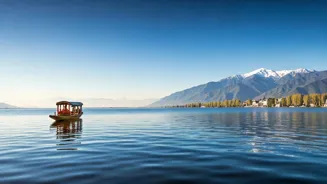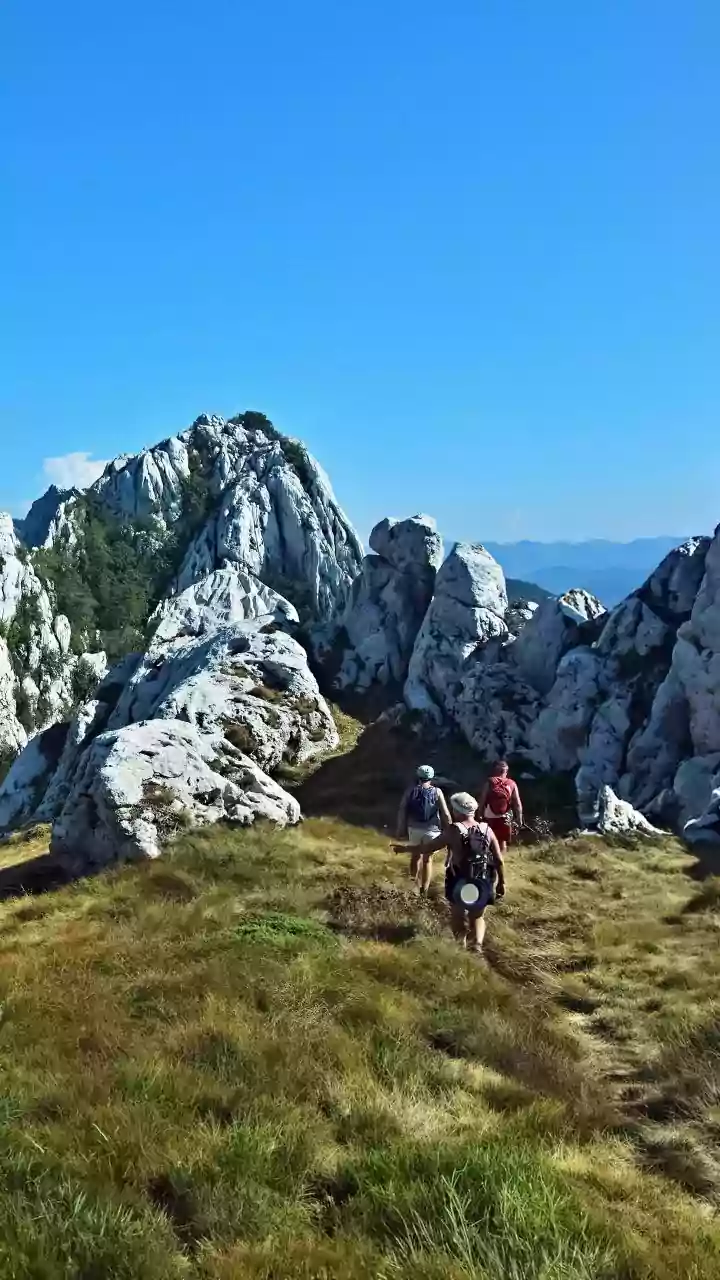A Scenic Overview
Dal Lake, situated in Srinagar, Jammu and Kashmir, is famous for its captivating beauty. The lake is renowned for its houseboats, known as 'shikaras,'
which offer a unique living experience. Additionally, the floating gardens, called 'rad,' enhance its charm. The lake's scenic beauty draws tourists from various parts of the globe. Dal Lake is an integral part of Srinagar's identity and attracts visitors throughout the year. The lake offers a glimpse into the rich cultural heritage of the region, with its traditional Kashmiri way of life. The reflections of the surrounding mountains and the floating gardens create a serene and picturesque atmosphere, making it a sought-after destination for tourists and locals alike. The lake is a vital part of the local economy, providing livelihoods for many through tourism and fishing.
Historical Significance
Dal Lake's history is deeply interwoven with Srinagar's heritage. Throughout history, the lake has been a source of sustenance and a crucial trade route. The Mughal emperors, appreciating its beauty, designed gardens around its shores, contributing to its allure. The lake has consistently been a focal point of cultural activities, acting as a venue for various festivals and events. The construction of houseboats began in the British era, introducing a unique accommodation style that became synonymous with Dal Lake. Over the years, the lake has witnessed several shifts, including political changes and infrastructural developments. This history adds to its appeal, making it a must-see location for those keen on knowing the cultural background of the area. Understanding this history gives visitors a deeper appreciation for the lake's importance in the region.
Unique Features Explored
Dal Lake stands out due to its distinctive features that attract visitors. The houseboats provide an unparalleled living experience, allowing visitors to spend time on the water. The 'shikaras,' traditional wooden boats, are a symbol of the lake and offer transportation. The floating gardens, known as 'rad,' are another of the lake's significant highlights. These gardens, constructed on the lake's surface, are used for cultivation. The lake's vibrant markets, selling various items, create a dynamic atmosphere. These aspects provide a comprehensive experience for everyone. These characteristics, along with the reflections of the surrounding mountains and clear waters, make Dal Lake an unmatched travel spot. The coexistence of nature and culture makes it a prominent landmark in the region, attracting tourists and locals alike.
Ecosystem and Life
The ecosystem of Dal Lake plays a crucial role in supporting the local biodiversity and communities. The lake hosts various aquatic plants and animals that contribute to its health. These aquatic plants help filter the water, supporting the lake's clarity. The lake also is home to different fish species, which support the local fishing industry. The ecosystem supports the local way of life, with fishing and tourism being major sources of income. The lake is a habitat for many bird species, making it a perfect place for birdwatching. The lake's role as a part of the local ecosystem highlights the need for its preservation. The interconnectedness of the lake's ecosystem with the lives of people living around it highlights the importance of conserving Dal Lake and the need for sustainable practices to ensure its vitality.
Challenges and Threats
Dal Lake is facing several challenges and threats, affecting its health and sustainability. Pollution, mainly from human activities and waste, is a major problem. The increasing tourism also causes strain on the lake. Encroachment and habitat destruction are other critical issues impacting the ecosystem. Climate change also contributes to the degradation of the lake. Efforts are underway to tackle these issues, including waste management and conservation initiatives. These problems show the need for effective preservation measures to ensure the long-term survival of this vital resource. Addressing pollution, controlling tourism, and protecting the lake's ecosystem is essential for maintaining its health and appeal. These challenges also require raising public awareness and active engagement to protect the natural beauty of Dal Lake.
Tourism's Impact
Tourism significantly impacts Dal Lake, bringing both economic benefits and environmental challenges. It provides employment opportunities for the local communities through various sectors, including hospitality, boating, and handicrafts. However, increased tourism leads to pollution, waste generation, and habitat degradation. The rise in tourists also results in increased demand for resources and infrastructure. Sustainable tourism practices are essential to ensure that the positive aspects of tourism are sustained while minimizing its negative effects. These practices include waste management, responsible use of resources, and supporting local businesses. Finding a balance between tourism and conservation is crucial for preserving Dal Lake for future generations. Encouraging eco-friendly practices and educating tourists on the lake's importance is important.
Preservation and Conservation
Multiple efforts are in progress to preserve and conserve Dal Lake's natural beauty. The government and local organizations are undertaking cleanup drives to remove waste and pollutants. Wastewater treatment plants are installed to reduce pollution and improve water quality. Awareness programs are being conducted to educate locals and tourists about responsible practices. Measures are taken to control the growth of weeds that affect the lake's ecosystem. These preservation activities are essential in ensuring the long-term sustainability of the lake. Public involvement, community cooperation, and ongoing initiatives play a major role in preserving the ecological balance. Sustainable approaches, including eco-tourism, are crucial to maintain the lake's beauty and vitality. Protecting and preserving Dal Lake is not only important for its environment but also for its historical and cultural heritage.




















